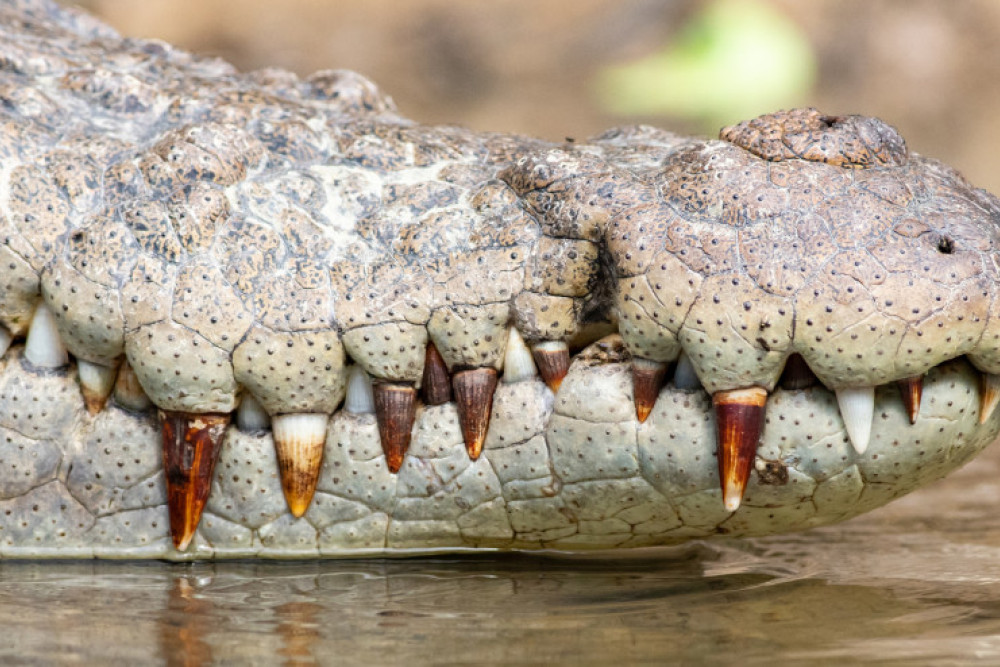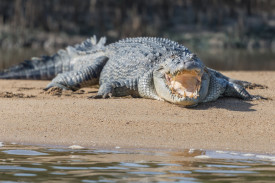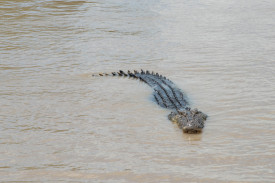General News
10 June, 2021
DES says tagging ineffective.
IN a statement provided to Cairns Local News, the Queensland Department of Environment and Science (DES) said it was working on various innovations to improve its crocodile management plan, but tagging would not work.

“DES does not plan to introduce the GPS tracking of crocodiles in the Port Douglas area, as it is considered to be unlikely to contribute to greater public safety,” said the statement.
“Estuarine crocodiles are highly mobile animals and often use the ocean to travel between rivers and estuaries, with larger individuals capable of travelling hundreds of kilometres in a few days.
“It is not possible to capture and tag all crocodiles that pass through the Port Douglas area. A failure to detect [tagged] crocodiles in the area would not mean there were no crocodiles present, and it was safe to enter the water.
“Capturing and tagging crocodiles often makes them wary and difficult to capture again. This would impact on DES’ ability to remove a problem crocodile from the wild.”
The DES statement said the department was already implementing and investigating other, more promising forms of technology for crocodile detection.
RELATED: Call for crocodile tagging and tracking
“DES is researching and trialling the use of multi-beam sonar and ‘deep-learning’ technology to automatically detect and alert the presence of crocodiles in an area,” said the statement.
“This is the same technology used in the Western Australia SharkSmart program for shark detection. Preliminary results of the research have been encouraging, with crocodile detection rates approaching 100 per cent during the latest trials.
“In 2020, DES launched the free Qwildlife app to allow residents and visitors in croc country to report crocodile sightings in real time from their smart phones or tablets. People can also use the app to check where crocodile sightings have been reported in the previous 30 days, and the locations of any declared ‘problem crocodiles.’
“In 2018, DES provided $105,000 in grant funding to Surf Life Saving Queensland (SLSQ) for drone-based crocodile monitoring of patrolled beaches in Far North Queensland, including at Four Mile Beach.
“SLSQ has since been using the drones to detect approaching crocodiles and to temporarily close beaches to swimming where necessary.”
Members of the public are encouraged to report crocodile sightings as soon as possible, by using the DES CrocWatch app, or by calling 1300 130 372. DES investigates all reports it receives.




